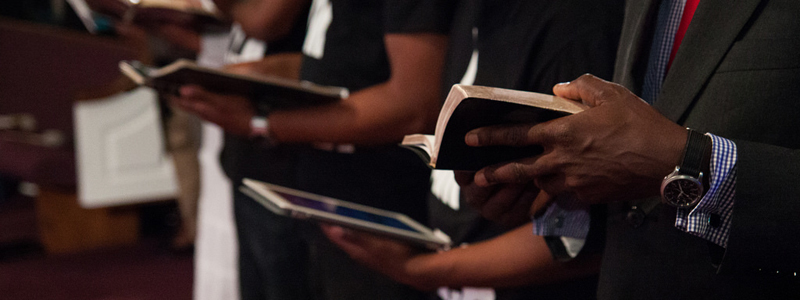
FRIDAY MORNING MANNA
June 20, 2014
Are We Preparing for the Latter Rain?– Part XXXV
A Sabbath-Keeping People (continued)
“THOU SHALT HAVE NO OTHER GODS BEFORE ME.” Exo. 20: 3; Deut. 5: 7. This is the first commandment of God’s law that is as glorious, eternal, and unchanging as its Author. “Jehovah, the eternal, self-existent One, himself the source and sustainer of all, is alone entitled to supreme reverence and worship. Man is forbidden to give any other object the first place in his affections or service. Whatever we cherish that tends to lessen our love for God or to interfere with service due Him, of that we do make a god.” – E. G. White, Patriarchs & Prophets, p. 35.
Paul says He “is the same yesterday, today and forever.” Heb. 13: 8. John testifies that while in Patmos he was“in the Spirit on the Lord’s Day” (Rev. 1: 10) when he received “The Revelation of Jesus Christ” (Rev. 1:1-3) and records Him as declaring: “I am Alpha and Omega, the beginning and the end . . . I am the Lord, who is, and whowas, and who is to come, the Almighty.” Rev. 1: 8; cf. 21: 6. This is He who presented himself to the Jewish nation, as “the Lord of the Sabbath” that “He made for man.” Matt. 12: 8; Mark 2: 27, 28; Luke 6: 5.
What a grand and convincing witness and testimony to the world it would be when the work of genuine Sabbath reform takes place among those who profess to be Sabbath-keepers today—if they strive to enter each weekly Sabbath, starting Friday sundown, to be in the Spirit on the Lord’s day, and as they assemble in congregational worship the next morning till sunset, on the only day the Creator rested, blessed, sanctified and set apart as theMemorial of His Creation.
This is part of the great reformation that Isaiah prophesied would take place in the last days. It includes restoring the Sabbath to its central place in God’s law and in man’s hearts; ceasing from six-days of oftentimes stressful labor and entering into the transcendent rest, refreshing, and joy of worshipping the Lord of the Sabbath, not theday itself, on the day He appointed. The Lord of the Sabbath is constantly referred to by the prophet Isaiah in his prophecy of the last-day reformatory movement:
“If you turn away your foot from the Sabbath, from doing your pleasure on My holy day, and call the Sabbath a delight [not a burden!], the holy day [not a holiday] of the Lord honorable, and shall honor Him [by] not doing your own works, nor finding your own pleasure, nor speaking your own words, then you shall delight yourself in the Lord; and I will cause you to ride on the high hills of the earth, and feed you with the heritage of Jacob your father. The mouth of the Lord has spoken it.” Isaiah 58: 13, 14, N.K.J.V.
In verse 12 God calls such the “repairers of the breach [that was made in His law], “the restorer of paths to dwell in.” (K.J.V.) More promises are assured them: “And the Lord [of the Sabbath] will guide you continually, and satisfy your soul in drought, and strengthen your bones; you shall be like a watered garden, and like a spring of water, whose waters do not fail. Those from among you shall build the old waste places, you shall raise up the foundations of many generations.”
In chapter 56 the Gentiles or non-believers are definitely included in this work. This salvation-determining message is at the core of the three angels’ warnings of Revelation 14 that are to be given “to every, nation, kindred, tongue, and people.” Rev. 14: 6-12. Earth’s inhabitants are warned to keep God’s Sabbath or else they will receive “the mark of the beast.” Rev. 13: 16-18; 14: 9, 10. Injustice and unrighteousness are directly related to defiling the Sabbath while those who keep it holy are blessed. Notice:
“Thus says the Lord [of the Sabbath]: keep justice and do righteousness, for My salvation is about to come, and My righteousness to be revealed. Blessed is the man who does this, and the son of man who lays hold on it; who keeps from defiling the Sabbath, and keeps his hand from doing any evil. Do not let the son of the foreigner who has joined himself to the Lord speak, saying, ‘The Lord [of the Sabbath] has utterly separated me from His people, nor let the eunuch say, Here I am, a dry tree. For thus says the Lord [of the Sabbath]: To the eunuchs who keep My Sabbath, and choose what pleases Me, and hold fast My covenant [Deut. 4: 13], even to them I will give in My house and within My walls a place and a name better than that of sons and daughters; I will give them an everlasting name that shall not be cut off. Also, the sons of the foreigner who join themselves to the Lord to serve Him, and to love the name of the Lord [of the Sabbath] to be His servants—everyone who keeps from defiling the Sabbath, and holds My covenant— even them will I bring to My holy mountain, and make them joyful in My house of prayer. . . . for My house shall be called a house of prayer for all nations. The Lord God who gathers the outcasts of [Sabbath-keeping, spiritual] Israel , says, Yet I will gather to Him others besides those who are gathered to Him.” Isa. 56:1-6.
The Lord of the Sabbath reiterates this prophesied “gathering of outcasts from all nations,” “the others,” in these familiar New Testament Scriptures: “And other sheep I have which are not of this fold; them also I must bring, and they will hear My voice; and there will be one flock and one Shepherd.” John 10: 16. In the context these verses are given, it undeniably means “there will be one Sabbath-keeping flock and one Lord of the Sabbath Shepherd! “For God is not the author of confusion but of peace, as in all the churches of the saints.” 1 Cor. 14: 33. God’s own precious saints are all “who keep the commandments of God and the faith of Jesus.” Rev. 14: 12.
The first commandment is explained in detail in the nine following it, and are summarized in the New Testament as: “You shall love the Lord your God with all your heart, with all your mind, with all your soul, and with all your strength; and your neighbor as yourself.” Luke 10:27. Lord means “ruler, “master.” The gospel writers warn all to remember that whenever we say “Lord” we are taking the name or calling upon the He who made the heavens and the earth. To those who claim this is “the new commandment of love” that replaces the Decalogue the question naturally arises: Are you then truly loving God with all your heart, mind, soul, and strength, and your fellow men as much as yourself? Again, it must be asked: Who is this God as there are many “other gods”!
“To obey is better than sacrifice.” 1 Sam. 15: 22. All forms of worship or religions require some form of sacrifice. Not all are acceptable to God. This basic truth was immediately set down in the beginning by the example of the first two sons of Adam and Eve. At the outset, both sons complied with God’s requirement to build altars for worship. The difference lay in what each chose to offer on their respective altars. Cain, the elder, offered whathe wanted to,—the best fruits of his own works. Abel offered what God specified. The consequences of these two kinds of worship have been replicated from generation to generation till the close of time. See Gen. chaps. 4, 6, 7.
The majority of the religious world still worships on a day not of God’s own choosing, many ignorantly. However,Pentecost renders this day of ignorance as past. The end-time truths and prophecies have been steadily unfolding since the three angels’ messages of Revelation 14 began to be successively proclaimed from 1840 to 1844. The Lord’s Day is the seventh day Sabbath of Creation, not the first, neither any other day of the week. Elijah, in his work of reform during the height of ancient Israel ’s apostasy, declared atop Mount. Carmel : “How long halt ye between two opinions? If the Lord is God, follow Him; but if Baal [the ancient sun-god], then follow him.” 1 Kings 18: 20, 21: We can only serve one, not two masters. See Luke 16: 13.
See Acts 17: 16-31. Apostle Paul dealt wisely with the Epicurean and Stoic philosophers of the idol-worshipping city of Athens who accused him of being “a proclaimer of foreign gods because he preached to them of Jesus and the resurrection.” They took him to the Areopagus (Mar’s Hill to the Romans) to explain and defend his position. Paul’s opening statement was: “Men of Athens, I perceive that in all things you are very religious,” and explains how he concluded thus: “For I was passing through and considering the objects of your worship, I even found an altar with this inscription: THE UNKNOWN GOD.”
Then he proceeds to expound on who this “unknown God” is: “Therefore, the One whom you worship without knowing, Him I proclaim unto you: God, who made the world and everything in it, since He is Lord of heaven and earth, does not dwell in temples made with hands. Nor is worshipped with men’s hands, as though He needed anything, since He gives to all life, breath, and all things.
AndHe has made from one blood every nation of men to dwell on all the face of the earth, and has determined their pre-appointed times and boundaries of their habitation, so that they should seek the Lord, in the hope that they might grope for Him and find Him, though He is not far from each one of us; for in Him we live and move and have our being, as also some of your own poets have said, ‘For we are also His offspring.’ Therefore, since we are the offspring of God, we ought not to think that the Divine Nature is like gold or silver or stone, something shaped by art or man’s devising.” That’s the second commandment forbidding the making of and bowing down to graven images! Exo. 20: 4-6; Deut. 5:8-10.
Paul then declares the testing truth to all who plead ignorance as to which day they keep as the Sabbath: “Truly, these times of ignorance God overlooked [winked at, K.J.V.], but now commands all men everywhere to repent.” Why? “Because He has appointed a day on which He will judge the world in righteousness.” By whom? “By the Man whom He has ordained. He has given us assurance of this [judgment] to all by raising Him from the dead.”
So Christ’s glorious resurrection, which every Christian religion from Roman Catholicism to Protestants and Evangelicals, believe, is the assurance that there is an appointed day of judgment by the Lord of the Sabbath! How will we fare in this judgment if we don’t keep His Sabbath? (Continued next week)

